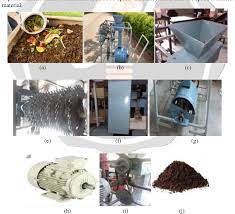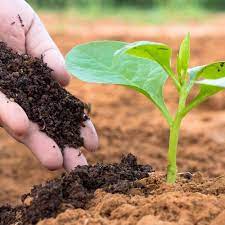What is Organic composting ?
Organic composting is a natural process that transforms organic materials into nutrient-rich soil conditioner known as compost. Composting is an environmentally friendly and sustainable way to recycle kitchen and yard waste, reducing the amount of organic waste that ends up in landfills while simultaneously creating a valuable resource for gardening and agriculture.
Here’s how organic composting works:
- Gathering Organic Materials: To start composting, you need a mix of organic materials, often referred to as “green” and “brown” materials.
- Green materials: These are rich in nitrogen and include items like kitchen scraps (e.g., fruit and vegetable peels), coffee grounds, and grass clippings. Green materials provide protein for microorganisms that break down the compost pile.
- Brown materials: These are rich in carbon and include items like dried leaves, straw, shredded newspaper, and small twigs. Brown materials provide energy for the microorganisms.
- Layering and Mixing: Effective composting requires a balance of green and brown materials. You should layer these materials in a compost bin or pile, alternating between green and brown layers. Turning or mixing the compost pile occasionally helps aerate it, allowing oxygen to reach the microorganisms responsible for decomposition.
- Microbial Activity: As the compost pile decomposes, microorganisms such as bacteria, fungi, and other beneficial organisms break down the organic matter. They consume the green and brown materials and transform them into a rich, humus-like substance.
- Heat Generation: The composting process generates heat as a byproduct. A well-maintained compost pile can reach temperatures between 120°F and 160°F (49°C to 71°C). This heat helps kill weed seeds and pathogens, making the compost safer to use in gardens.
- Aging and Curing: Compost piles are typically left to age and cure for several months to a year. During this time, the compost continues to break down and stabilize, resulting in a mature, nutrient-rich compost that is ready to be used in gardening or landscaping.
Benefits of organic composting include:
- Nutrient-Rich Soil Amendment: Compost improves soil structure, adds essential nutrients, and enhances its ability to retain moisture.
- Reduction of Organic Waste: Composting reduces the amount of organic waste sent to landfills, which can help decrease methane emissions and reduce landfill use.
- Environmental Benefits: It reduces the need for synthetic fertilizers and helps combat soil erosion and water runoff.
- Cost Savings: Compost can replace commercial fertilizers and reduce the need for irrigation, saving both money and water.
Organic composting is a sustainable practice that promotes healthier soil, reduces waste, and contributes to more environmentally friendly gardening and agriculture. It’s an excellent way for individuals and communities to participate in recycling and promote sustainable land management.





